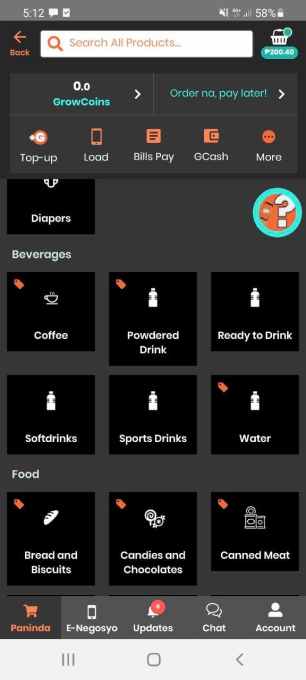Sari-sari stores are neighborhood stores in the Philippines that usually sell daily necessities and sometimes serve as community hubs, too. Today GrowSari, a startup that is digitizing sari-sari stores with features like pricing tools, inventory management and working capital loans, announced it has raised a Series B from several notable investors that brings its total funding to $30 million.
The company’s Series B is at a rolling close, so it has not announced a final amount. The $30 million total it has raised include its seed funding and Series A, which according to a July 2020 profile in Esquire Philippines was $14 million. Participants in its Series B included Temasek Holdings’ private equity unit Pavilion Capital, Tencent, International Finance Corporation (IFC), ICCP SBI Venture Partners and Saison Capital, and returning investors Robinsons Retail Holdings (which is part of the Gokongwei Group), JG Digital Equity Ventures and Wavemaker Partners.
GrowSari was founded in 2016, and says its B2B platform is currently used by more than 50,000 stores in over 100 municipalities on Luzon, the Philippines’ largest and most populated island. Its ultimate goal is to serve one million sari-sari stores.
According to GrowSari, there are more than 1.1 million sari-sari stores in the Philippines, and they account for 60% of fast-moving consumer goods (FMCG) sold in the country, making them a valuable distribution channel for wholesalers. In addition to its supplier marketplace, GrowSari says it is able to give sari-sari store operators better pricing for products from about a thousand FMCG brands, including Unilever, P&G and Nestle, which it claims can help stores double their earnings. Other services in the app include online telecom and utility bill payments, remittance and microfinancing for working capital loans.
GrowSari’s founding tDeam includes Reymund Rollan, Shiv Choudhury, Siddhartha Kongara and Andrzej Ogonowski, who first launched the platform as a backend system for sari-sari stores to manage their logistics and inventory.
Since most sari-sari stores are run individually, their margins are smaller than large retailers that can negotiate deals with FMCG wholesalers. GrowSari’s supplier marketplace addresses this issue by giving sari-sari stores access the Distributor List Prices seen by large stores and wholesalers. GrowSari’s marketplace does not require a minimum order, and it allows sari-sari stores on the platform to pay with cash on delivery, GrowCoins (or cash credits that can be topped up through GrowSari’s shippers, online transfers, banks or over-the-counter at convenience stores) or E-Lista, GrowSari’s seven-day loan product.
GrowSari’s new capital will be used to expand its userbase to 300,000 new stores in the Philippines, especially in Visayas and Mindanao, increase the size of its supplier marketplace and launch more financial products for sari-sari stores. The startup is part of a new crop of B2B platforms in Asia focused on serving micro to small-enterprises, including BukuWarung and BukuKas in Indonesia and Khatabook in India.
from TechCrunch https://ift.tt/3xElHKq









0 comments:
Post a Comment